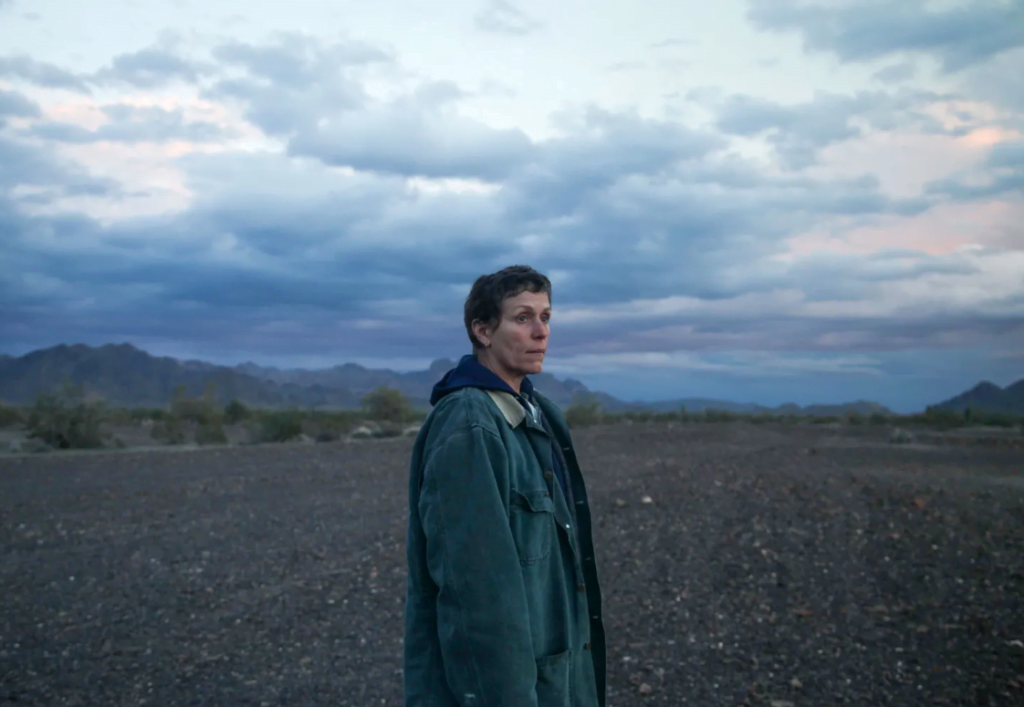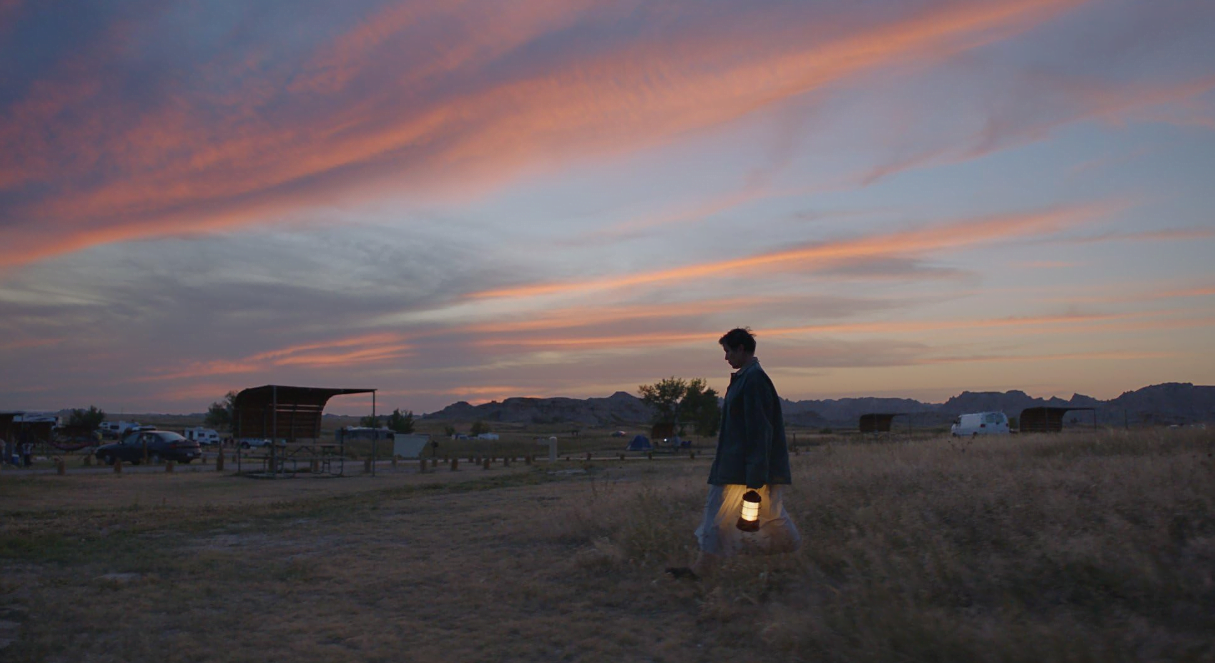Travel bears much larger significance than those that meet the eye. Though categorised as a physical activity, it is more connected to the soul and impacts the physical mainly through the soul. Travel is also encapsulated with myriad layers of meanings. To some, it is a necessity to sustain livelihood while for others, it is a distraction from mundane life. But, above all, at a certain stage of life, travel becomes a metaphor rather than a physical journey, where the soul comprising of mental, social and psychological dimensions tries to transcend the boundaries and free oneself.
This freeing charm of travel has specific impacts based on the gender, class and age of the individual.
Tessa and her empowered self in Charlie (2015)
Directed by Martin Prakkat, a notable director in Malayalam, Charlie was an extraordinary take on individual freedom and travel. Though the film is focused on the titular hero Charlie, a bohemian vagabond, the story is told through the life and travel experiences of Tessa. She is from an affluent Kerala family who always tries to stay away from her home under the pretext that she does not want to marry or settle down in the age-old style.

In one of her escapes, she accidentally stays in a rented room previously occupied by Charlie. She slowly and rapidly falls in love with him. He shares many interesting and close values to her identity and thus, being a vagabond and graphic designer, she embarks on this journey which hints that Charlie could be her future. Therefore, he becomes her new destination and reason for the endeavour. She travels from place to place carrying her baggage, understanding Charlie by taking his path and ultimately, Charlie meets her, intertwining their paths.
For Tessa, an affluent woman in her mid-twenties, travel is a metaphor for freedom and self-discovery. She could move about without the fear of judgement and financial constraints owing to her class. Thus, the financial freedom and the security of her family assure her the freedom to choose her life or go in search of a man who could be her potential partner. Therefore, her gender or age does not pose a serious refrainment to ‘her‘ development.
The film also does not include any particular scene where her gender comes in conflict with her travelling or staying in whatever facilities are available. However this freedom or empowered status would have been completely absent in the case of a female from a different social class. Hence, Tessa resembles that individual representing that lot of women who are privileged to execute and enjoy life with their choices.
Rani Padmini (2015) and the travel to escape domestic space
Ashiq Abu’s Rani Padmini starred Manju Warrier and Rima Kallingal in the lead roles as Padmini and Rani. It is the story of two females in search of a space for breathing from their suppressive domestic confines. Padmini married to a Malayali family based in Delhi understands that her marriage was for keeping the company of her mother-in-law who condemns her desire to establish a career. Despite her compromising attitude, her mother-in-law asks Giri to divorce Padmini. Giri signs it without question sending Padimini to seek out an answer for herself. He soon leaves for his Himalayan Car rally and Padmini too sabotages the marriage and heads to the Himalayas. Her meeting and conversation with Rani, a little masculine and bold woman sends Padmini to seriously think about her confined and restricted life.

Rani and Padmini’s coming together is shown as a homosocial bond that helps to resolve and develop them. Being women in their thirties, they realise the refreshing and de-tangling impact of female bonds and travels. For them, travel is a metaphor for freedom, where they tangibly realise their separate lives as people with individual choices.
Fern and poverty in Nomadland (2020)
Nomadland is an American drama by Chloe Zhao, based on the book of the same name. This Oscar-winning film explores the forced nomadic life of an American woman in her late sixties. Fern being childless is forced to live a lonely life after the death of her husband, when the only source of her income, the company where she worked with her husband shuts down. With an ailing health and no family except her sister who lives a great distance away, she decides to sell out her belongings at home and buys a campervan, calling it ‘Vanguard.’

For Fern, travelling is the only choice out of no choices other than starving herself to death. Therefore, she leaves her home, which for years homed out of love and hard work with her husband. Through her attachment style and personality, it’s quite clear that she wishes to live in their home where she could feel less lonely. But the sudden shutting down of their company poses no resolution than the abandoning of the neighbourhood, forcing her out of her only solace. She tries to bring her homely touch to Vanguard to her best by installing those pieces of crockery and tiny articles that bear significance to her now non-existent family.
As a van traveller, she is exposed to many challenges which she never knew how to handle, but in these circumstances, the unexpected help from strangers on the way makes her grateful for life. Her travel is very much in tune with the ascetic life of an old person as in a pilgrimage before bidding farewell to her life. Her journeys become more of a kind of philosophical musings with no words to convey her state of mind. It is pretty much left for the audience to fill in. The use of music to fill in her boring long travels on the abandoned long roads amid the American desserts, specifically in the climax connotates the boredom and emptiness in old age and that too, of a widow.
Her meeting with Dave, enjoying his later life like Fern, creates a feeling of belonging in her but she never reciprocates to his feelings towards her. As a person who has embraced solitude and homelessness in peace, and nearing her death, she does not think of the need for companionship. The grace with which she readily accepts her life filled with uncertainty, helplessness and financial issues is so different from the other characters like Tessa, Rani or Padmini.
In the larger picture, these women characters are from different spaces: empowered/affluent, unempowered/non-affluent, forced/free, and healthy/unhealthy binaries. Fern becomes the most disabled in the categorisation, while the others, do have a choice to make. But whatever reasons bind them, the single trajectory of feminine experience at different phases of life through travel could be drawn comfortably well. Tessa being affluent and protected can view travel as a passion for self-discovery whereas, for the Rani-Padmini combo, it is liberating space to understand all those they are missing and for Fern, it is a forced pilgrimage to see the world before closing her eyes. In all of them, travel has a gender-specific element to offer, as a liberating space that removes societal fetters at least partially.
About the author(s)
Vidhu (she/her) is an emerging writer with Masters in English language and literature, keen on learning the politics of the world around her. She has dreams to create a career in journalism and writing, where she unburdens her self. She has a great taste for movies from varies geographical spans and pens down poetry in magical charms. She is open to projects or research centring on humanities.






This is such an intriguing analysis! It’s fascinating to see how films portray femininity through the lens of travel, especially when intersecting with class and age. The way these films represent different experiences and challenges faced by women of varying backgrounds adds so much depth to the discussion of gender and identity. Looking forward to exploring these themes further—thank you for shedding light on this important topic!
Enjoyed the article .Can well relate to how women take to travel for different reasons. It nevertheless, leads to a sense of discovering oneself or others, in the process. So, always great to put on your traveling shoes!